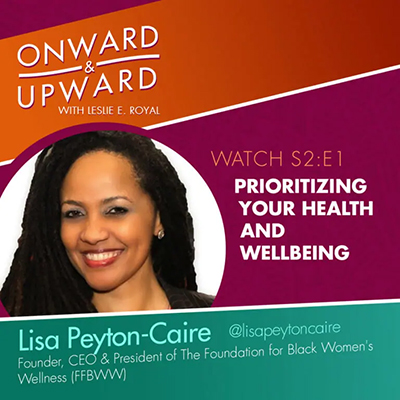Resolution Revolution: Crafting Resolutions You Will Commit To
New Year’s resolutions are nothing new. They are a time-honored tradition that has been around since at least the 19th century. That’s well over one hundred years. So, folks have been attempting self-reflection and self-improvement for a long time. Like us, despite best efforts, these resolutions were not always kept. Let’s just say it wasn’t any easier then than it is now to keep our New Year’s Resolution. But all is not lost; we can (and should) reflect on ways to improve our health, wellness, finances, and relationships. Here are some tips to help you set and achieve your goals in this new year.
Let’s start by defining a resolution. A resolution is a promise to do something differently in the new year. It is a promise we make to ourselves. Our goals typically surround improving fitness and finances, career goals, and prioritizing mental health. According to the stats, 40% of us maintain our goals at six months and 19% at two years. Here are some ways we can be among the 19% that achieve success in their goals.
1. Make S.M.A.R.T. Goals
Our success in maintaining goals begins first with setting the right type of goals. We must first start with setting S.M.A.R.T. goals. S.M.A.R.T. goals are specific, measurable, achievable, relevant, and time-bound.
When it comes to goal setting, details matter. Provide as many details as you can to shore up your likelihood of success. For instance, some common goals are to lose weight, eat healthier, and spend more time with the kids. The list goes on. These are all worthy goals. However, their lack of clarity is a setup for frustration and, ultimately, failure. Let’s see how we can turn these into SMART goals.
Specific Goals
When it comes to specificity, numbers matter. Rather than stating a goal of losing weight, be specific about how much you aim to lose. What total loss would you like to achieve, and over what period? Be realistic about this number. While you may want to lose twenty percent of your body weight, it may not be reasonable to expect to achieve that in one year. A reasonable weight loss goal is no more than 1-2 lbs per week.
Being specific in our goals helps in two critical ways. First, it makes the goal less intimidating. Second, it helps us recognize when the goal is met and alerts us when we are straying off course. How can you celebrate victory when you have not defined what that victory will look like for you? Clarity and specificity are key to achieving and recognizing success.
Measurable Goals
A measurable goal is just that, something you can measure. Now, with the goal of weight loss, this is more apparent. But what about more abstract goals, such as a goal to improve a relationship? This may seem more challenging to measure. A relationship improvement goal requires more reflection to make it specific and measurable. But it can be done. Relationship improvement starts with self. This means that the only thing you can control in a relationship is yourself. So, your goals will have to fall back on you. What will YOU do daily or weekly to improve your relationship? How will YOU react (or not) to invites, celebrations, or disappointments? What will YOU say (or not) say in conversations?
Non-numerical goals can still be specific and measurable. For instance, for a goal that involves relationship building, you may set these mini-goals:
I will:
- call person X at least once per week.
- allow them to speak without interruption
- look for the positive aspects of our interaction and have that be the focus
- share feedback in a kind and sensitive fashion
This is but one example of how all goals can still be specific and measurable. Reflecting on your situation and relationship will allow you to state goals that are relatable to you on a personal level.
Achievable Goals:
Lofty and ambitious goals are the way to go. They show ambition, strength, and faith in the power of your abilities. However, accomplishing these goals requires thought and strategy. By breaking these down into bite-sized goals, you are increasing your chances of successful completion.
The goal of starting your own business may seem daunting. Where do you begin? The task lists seem endless. You can easily become inundated, discouraged, and paralyzed with fear. However, if you first start with simply writing down five tasks, that can help get the wheels turning. Then another five after that. Resolve to keep going. With each day, you will undoubtedly be closer to your goal.
Tackling baby steps rather than a giant leap makes your goal less intimidating and easier to accomplish.
Relevant Goals
A relevant goal is one with which you have a personal connection. Your “big why” goes to the heart of the relevance of your goal. Here is the thing to know about your big why. When you ask yourself why you want to achieve this goal, your initial answer will rarely be your true big why. You must keep asking yourself why before your true meaning is revealed. Here is what I mean.
Goal: Improve my credit score by 50 points this year.
Relevance: Why is improving my credit score by 50 points important?
Answer: I will need to purchase a new car by next year.
Ques: Why must you improve your credit score to purchase a new car?
Ans: To get a lower interest rate on the loan.
Ques: Why is a low interest rate on your car note desirable?
Ans: So I can spend less money on the same car.
Ques: Why is spending as little as possible on this new car purchase necessary?
Ans: My income is already stretched thin. By conserving on the new car purchase, I will have more money to do other things.
Question: Why is having more money to do other things significant?
Ans: If I spend all my money on a car note, I won’t have money left to do things I enjoy, like travel. I will feel like I am only working to pay debts. This is depressing and will reduce my quality of life.
Again, reaching the relevance of your goal on the first try is rare. It will require some thought and reflection. But stick with it; bringing this big why to your consciousness and forethought is well worth the effort. When obstacles present themselves, and they most certainly will, the big why is a huge motivator to keep you moving forward.
Time-Bound Goals
Having a deadline is an essential element in achieving your goal. A goal without a deadline is like sailing a ship without navigation. Deadlines help to motivate action and bring us closer to goal achievement. But how do you determine the appropriate deadlines? Start by going back to your bite-size goals. Setting deadlines for these small goals will help determine an appropriate deadline for the over-arching goal. As your project builds momentum, you may need to make minor adjustments to the anticipated deadline. However, I caution you not to allow a shifting delay to be used as a procrastination tool.
Some deadlines are absolute, such as contractual obligations, productions, or events. This can be stressful. However, strict adherence to mini deadlines will set you up for success in reaching your deadline for the overall goal.
Suppose your goal is to write a book, for instance. You must break these down into smaller bite-size goals as you go along. How many pages will you write in a day or a week, or conversely, how many minutes will you commit to writing each day? Breaking down the larger goals into increments is an effective way to progress, especially with busy schedules.
2. Plan Ahead
“If you fail to plan, you are planning to fail”- Benjamin Franklin.
Take time to reflect and plan your strategy for success- and write it down. Consider any obstacles you may face. How will you handle them? Anticipate the potential pitfalls and record your strategy for success. Sometimes, setting aside time to simply think and reflect may be challenging. We are a nation of doers. If our feet or our hands aren’t moving, we feel like we are wasting time. This is a fallacy of thought. Some of our most significant moments of triumph are rooted in those seeds of reflection. Taking time to plan is an essential component of achieving your goal. If you find it difficult to carve time out for introspection, consider the times that may easily lend itself to this activity. Such as during your commute, using the bathroom, or having a meal. If these times are typically spent listening or watching your media device, try turning these off for at least a few minutes. Take this time to reflect and consider your goals. Plan and visualize your success. The only caveat is you have to commit to writing it down. So, once you have arrived at your destination, take a few minutes to record your thoughts and plans. Immortalizing your plan in ink will prevent thought redundancy and help propel you forward. Forgetting your plan will force you to reconsider the same issue rather than perfecting an already laid-out plan. Remember, “one dull pencil is worth two sharp minds”- source unknown.
3. Buddy up
As humans, our moods and motivation levels will not be consistent daily; they will wax and wane. This is a perfectly natural part of life. However, when we buddy up, we can draw on our buddy’s energy and motivation when ours is down, and vice versa. The buddy system works particularly well for physical activity goals like exercise. It can also work well for the completion of business projects. For the non-task-related goals, the buddy system can still help. Having an accountability partner who reminds you of your goals when you seem to be veering off track helps steer you toward goal achievement.
4. Daily Reminder of the Big Why
It is easy to let daily mundane tasks hijack your journey. Visual reminders of your big why in conspicuous locations can help you maintain momentum. Some things must be sacrificed to reach your goal, and the daily reminder of your big why will nudge you to prioritize these tasks.
5. Celebrate Small Victories
At times in our journey, we can feel like no progress is being made. Having a sense that your efforts are futile can discourage further progress. Looking back at where you were before setting out on this journey and where you are currently can open your eyes to your accomplishments. While you may not yet be at the finish line, that does not mean your goal is unaccomplishable or that progress has not been made. Pause, reflect, and celebrate these mini-victories as you forge toward your grand achievement. And most importantly, keep going!
Written by: Dayna Smith, MD | Reviewed March 20, 2025 | Copyright myObMD. Media, LLC, 2025
References
- Gregor, Reid et al, Oral Use of Lactobacillus rhamnosus GR-1 and L. fermentum RC-14 significantly alters vaginal flora: randomized, placebo-controlled trial in 64 healthy women. FEMS Immunol Med Microbiology. 2003 March 20;35(2):131-4.
- Harvard Health Blog: Bilodeau, K, Should you use probiotics for your vagina?, December 27, 2019.
- Sobel, jack, MD et al, Candida vulvovaginitisL Clinical manifestations and diagnosis. Uptodate.com accessed September 09, 2021.
- American College of Obstetrics and Gynecology (ACOG), Vaginitis in Nonpregnant Patients. Practice Bulletin, Number 215, January 2020.


